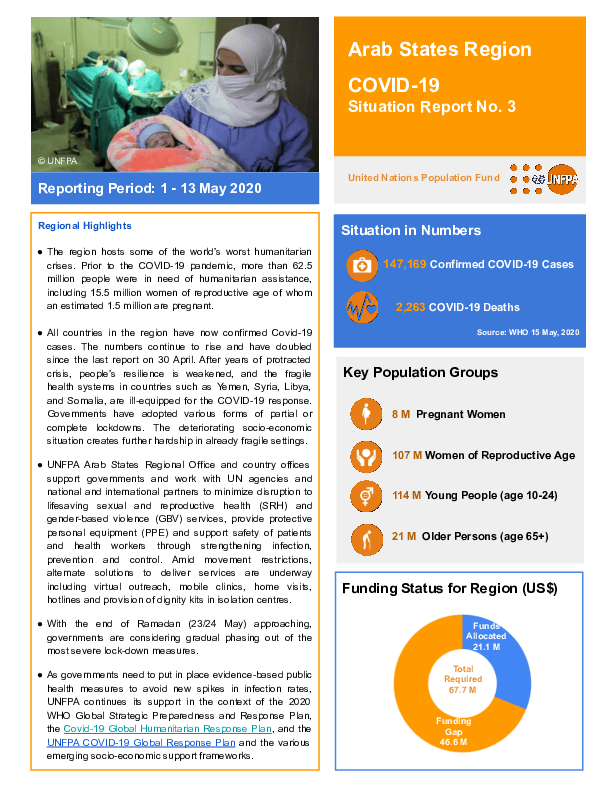
Resources
COVID-19 Situation Report No. 3 for UNFPA Arab States
Resource date: 13 May 2020
Author: UNFPA
- The region hosts some of the world’s worst humanitarian crises. Prior to the COVID-19 pandemic, more than 62.5 million people were in need of humanitarian assistance, including 15.5 million women of reproductive age of whom an estimated 1.5 million are pregnant.
- All countries in the region have now confirmed Covid-19 cases. The numbers continue to rise and have doubled since the last report on 30 April. After years of protracted crisis, people’s resilience is weakened, and the fragile health systems in countries such as Yemen, Syria, Libya, and Somalia, are ill-equipped for the COVID-19 response. Governments have adopted various forms of partial or complete lockdowns. The deteriorating socio-economic situation creates further hardship in already fragile settings.
- UNFPA Arab States Regional Office and country offices support governments and work with UN agencies and national and international partners to minimize disruption to lifesaving sexual and reproductive health (SRH) and gender-based violence (GBV) services, provide protective personal equipment (PPE) and support safety of patients and health workers through strengthening infection, prevention and control. Amid movement restrictions, alternate solutions to deliver services are underway including virtual outreach, mobile clinics, home visits, hotlines and provision of dignity kits in isolation centres.
- With the end of Ramadan (23/24 May) approaching, governments are considering gradual phasing out of the most severe lock-down measures.
- As governments need to put in place evidence-based public health measures to avoid new spikes in infection rates, UNFPA continues its support in the context of the 2020 WHO Global Strategic Preparedness and Response Plan, the Covid-19 Global Humanitarian Response Plan, and the UNFPA COVID-19 Global Response Plan and the various emerging socio-economic support frameworks.